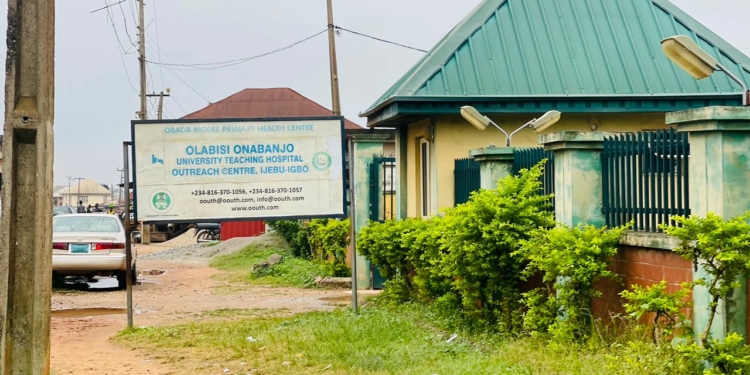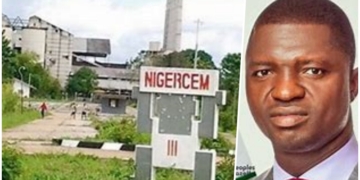After a long journey back from Ladoke Akintola University of Technology (LAUTECH) in Ogbomoso, Oyo State, on August 17th, I had to attend a dinner party in Ijebu-Igbo, despite my body feeling weak from the exhausting trip. I had traveled to LAUTECH to speak to students about fact-checking, spending more than 10 hours on the road, both to and fro.
The day after returning, I began to feel unwell. I thought it might be due to the stress, so I covered myself with a wrapper in my room and endured the cold night. Soon, I started sneezing, and then a cough set in. I had fallen ill, but the typical Nigerian instinct in me was to get some medication from the nearest pharmacy simply. It was Monday morning, but I decided against it. I recalled how I frequently fell sick last year and relied on self-medication, which didn’t help until I finally sought professional care at a hospital.
I endured the symptoms throughout the day, but by nightfall, it was clear that I was sick and needed to take action to prevent my condition from worsening. I decided to visit the hospital the following day. On Tuesday, August 20th, I couldn’t eat, vomited, and was too weak to visit the hospital alone. I called two friends, who came without hesitation, and we headed to the hospital together.
We went to Olabisi Onabanjo University Teaching Hospital in Ijebu Igbo, 1.2 kilometers from where I live. Upon arrival, we requested to have a test conducted and to see a doctor. We were told to sit and wait. After a few minutes, I was asked to enter a room where the test would be conducted. A nurse then approached me and asked what I needed.
“I want to conduct a test; I’m sick,” I told her. Her response left me even more tired and weak.
She informed me that the doctors were on strike and that she couldn’t attend to me. I explained the nature of my condition, but she kept repeating the same statement. “What if this were an emergency?” I thought, feeling frustrated.
She then directed me to a lab for testing, but I wanted to consult a doctor to determine the appropriate tests and receive professional advice to prevent future illness.
Ignoring her advice, I decided to go to another hospital.
Same Situation With Slight Difference
This time, we went to the Ijebu-Igbo General Hospital. Upon arrival, we noticed the facility was unusually empty. We passed by an abandoned ambulance as we approached some offices. Eventually, we found an open office and saw a patient with severe injuries on his left foot. After a few minutes, I could tell he was being attended to, judging by the noise coming from one of the offices.
I immediately stated the purpose of my visit. “I want to see the doctor,” I said loudly, hoping to be heard over the noise. It worked—a nurse came out and asked what I needed, but she informed me that the doctor was on strike. “I cannot see the doctor,” she emphasized. However, she was willing to assist me.
I underwent a malaria test, which came back negative, and was prescribed some medication. After picking up the drugs from the hospital pharmacy, I left.
Getting good health care in state-owned hospitals was difficult and this was a result of the ongoing strike by Ogun state doctors. I didn’t see any doctor and was uncertain why I fell sick. I had just many drugs to consume.
Doctors Strike Over Pay Disparity
On the 3rd of August 2024, Doctors in Ogun State embarked on an indefinite strike following unresolved issues on pay disparity between federal and state medical workers. The doctors under the aegis of the Nigerian Medical Association, NMA, at a press conference held in Abeokuta, said the strike came after a failed 3-day warning strike.
The Chairman of the association, Dr. Azeem Ashimi noted that the industrial action became necessary as a result of the inability of the association to agree with the government.
“The government continues to plead that the issues of minimum wage and other related matters are common but my people believe that we need to address the issues on the ground.
“The core of the doctors’ grievances lies in the reviewed CONMESS (Consolidated Medical Salary Structure), which they believe should be implemented to stem the exodus of medical professionals from Ogun State.
“Ogun State is losing a lot of doctors daily because of the pay disparity. If the reviewed CONMESS is paid, it will encourage the doctors to stay,” Ashimi said.
Health Workers Leave For Greener Pastures
Nigeria’s health sector is facing a severe shortage of skilled personnel due to a wave of migration of healthcare workers. The United Kingdom (UK) National Statistics reveal that in 2021, 4,087 healthcare workers migrated to the UK. In 2022, this number increased to 11,629, and it further rose to 26,074 in 2023, raising concerns.
Nigeria’s health workforce density is below the World Health Organization’s (WHO) minimum recommendation of 20 nurses, midwives, and doctors per 10,000 people. With a nursing and midwives density of 15.6 per 10,000 population, and a doctor density of 3.9 per 10,000, the health workforce shortage in Nigeria has significantly hindered the achievement of health-related sustainable development goals.
With the current migration of healthcare professionals, Nigeria currently has just 55,000 doctors for a population of 220 million, according to Nigeria’s Health Minister, Muhammad Ali Pate. He adds that there is a huge distribution challenge because doctors and other high-level professionals are concentrated in Lagos, Abuja, and a few other urban centers.
In a report published in March of 2023, the World Health Organization (WHO) warned that, by 2030, there will be a global shortage of 10 million healthcare workers. The shortage will especially affect low-income countries, such as Nigeria, due to workers going abroad in search of opportunities.




Discussion about this post